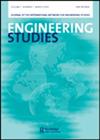长期坚持:工程教育改革中跨学科文化变迁的基础
IF 1.3
3区 工程技术
Q2 EDUCATION, SCIENTIFIC DISCIPLINES
引用次数: 0
摘要
STS学者和工程教育工作者如何长期合作,共同做出改变?2015年,美国国家科学基金会创建了革命性的工程部门(RED)计划,以解决工程教育中持续存在的挑战。RED的一个显著特点是它通过跨学科团队关注文化变革,将社会科学家和工程教育研究人员纳入长期部门规划。我们分析了这个国家的要求是如何转化为地方实践的。在六年的时间里,我们把重点放在关键参与的基础上,在我们努力实施文化变革的同时,重建我们有形和无形的谈判。我们这样做是为了分析经常未经检验的精神、社会、文化和政治劳动的批判性参与,使跨学科的文化变化成为可能。对这种基础工作的关注,揭示了RED等干预措施的革命性框架与长期实现这些干预措施的渐进式实践之间的本质区别。本文章由计算机程序翻译,如有差异,请以英文原文为准。
In it for the Long Haul: The Groundwork of Interdisciplinary Culture Change in Engineering Education Reform
How do STS scholars and engineering educators work together over an extended period to make change? In 2015, the National Science Foundation created the Revolutionizing Engineering Departments (RED) initiative to address persistent challenges in engineering education. A distinguishing feature of RED was its focus on culture change via interdisciplinary teams that brought social scientists and engineering education researchers into long-term departmental planning. We analyze how this national imperative translated into local practice. Focusing on the groundwork of critical participation over a six-year period, we reconstruct our visible and invisible negotiations as we worked to enact culture change. We do so to analyze the often unexamined mental, social, cultural, and political labor of critical participation that make interdisciplinary culture change possible. Attention to this groundwork brings out essential differences between the revolutionary framing of interventions like RED and the evolutionary practices of achieving them over the long haul.
求助全文
通过发布文献求助,成功后即可免费获取论文全文。
去求助
来源期刊

Engineering Studies
ENGINEERING, MULTIDISCIPLINARY-HISTORY & PHILOSOPHY OF SCIENCE
CiteScore
3.60
自引率
17.60%
发文量
12
审稿时长
>12 weeks
期刊介绍:
Engineering Studies is an interdisciplinary, international journal devoted to the scholarly study of engineers and engineering. Its mission is threefold:
1. to advance critical analysis in historical, social, cultural, political, philosophical, rhetorical, and organizational studies of engineers and engineering;
2. to help build and serve diverse communities of researchers interested in engineering studies;
3. to link scholarly work in engineering studies with broader discussions and debates about engineering education, research, practice, policy, and representation.
The editors of Engineering Studies are interested in papers that consider the following questions:
• How does this paper enhance critical understanding of engineers or engineering?
• What are the relationships among the technical and nontechnical dimensions of engineering practices, and how do these relationships change over time and from place to place?
 求助内容:
求助内容: 应助结果提醒方式:
应助结果提醒方式:


